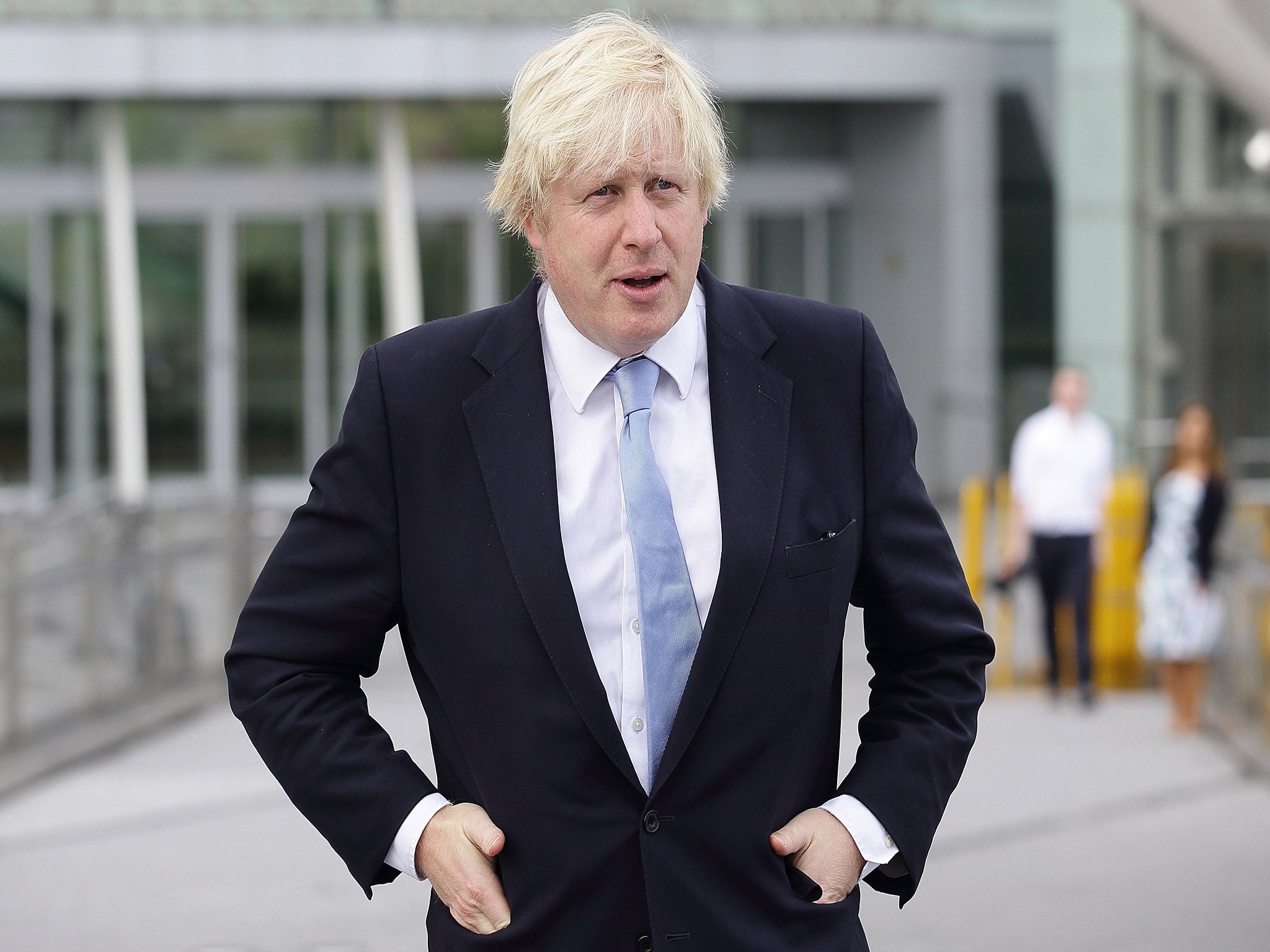Boris Johnson in the US: London mayor explains how he would save British politics
London mayor spoke Thursday in Washington DC

Boris Johnson, the mayor of London, told an audience of urban scholars and planners in Washington DC today that only a radical devolution of powers in Britain away from Whitehall to individual cities, including London, would help save British politics from the “very rocky period” it has entered into.
Starring in a ‘Global Cities’ panel discussion at the Brookings Institution on the fifth day of his visit to the United States, Mr Johnson said that giving cities control over a far greater share of the tax revenues raised in in their boundaries so they could pursue infrastructure and other projects without having to seeking “penny packets” from the Treasury would “electrify and detoxify a lot of politics in Britain”.
Asked by a moderator about whether big cities mayors had aspirations for higher office, Mr Johnson, who is running for parliament, spoke of not wanting to “outstay” his welcome in London. “I have got to find a new crag to leap onto,” he said, referencing Bagheera the Panther in the Jungle Book.
On a visit later to the Smithsonian Air & Space Museum he confused his hosts by instantly departing from their pre-arranged tour to seek out his favourite moon landing exhibits, staring at one moment at video clips of President John F. Kennedy announcing the space programme to Congress in 1961.
But it was at Brookings that British politics was most on his mind. He noted that while New York City was able to retain about 50 per cent of all the tax revenue it generated, London received only about 7 per cent. It was time, he said, to explain to the British Treasury that it “had nothing to be afraid of” if it agreed to a new system of apportioning a greater share to the cities to use the funds as they see fit.
“There is no question that it (Britain) is going through a very rocky period,” he offered. “Politicians are not thought generally to be in touch with the people. Push power down to the level of the cities and I think you would galvanise British politics.” Winston Churchill would have supported the change, he said.
He also offered a utopian vision of Britain’s cities and towns being linked by “tunnelised” hyper-speed links using maglev technology first developed by British scientist and recently embraced by the American billionaire entrepreneur Elon Musk as the means for developing a ’hyper-loop’ that would take passengers across the US continent at the speed of 800 miles an hour.
“I love what this guy Elon Musk is talking about,” he told the standing-room only audience.
Join our commenting forum
Join thought-provoking conversations, follow other Independent readers and see their replies
Comments
Bookmark popover
Removed from bookmarks